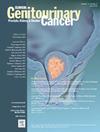肾功能资格标准对转移性肾细胞癌患者临床试验和真实世界生存结果的影响。
IF 2.7
3区 医学
Q3 ONCOLOGY
引用次数: 0
摘要
背景:转移性肾细胞癌(mRCC)一线(1L)治疗的注册试验采用严格的肾功能标准,这可能不能反映现实世界的患者。我们评估了基于试验的肾功能合格标准对现实世界结果的影响。方法:使用一个全国性的、未识别的电子健康记录衍生数据库,我们纳入了2011年1月至2023年4月期间接受1L全身治疗的mRCC患者。肾功能标准以试验方案为基础,包括血清肌酐(≤1.5 vs 1.5倍正常上限)、估计肾小球滤过率(≥30 vs 2)和计算肌酐清除率(≥40 vs结果:6896例患者中,4647例(67.4%)符合所有肾功能标准(纳入),586例(8.5%)至少符合一项(未纳入),174例(2.5%)不符合(排除),1489例(21.6%)肾功能未知(未知)。在调整分析中,放松组和排除组患者的中位rwPFS较低(风险比[HR], 1.12;95% CI, 1.00-1.25)和rwOS (HR, 1.23, 95% CI, 1.08-1.39)高于纳入组。结论:符合所有肾功能标准的患者比不符合这些标准的患者有更好的生存结果,这表明mRCC的临床试验结果可能不能完全推广到现实世界的患者。本文章由计算机程序翻译,如有差异,请以英文原文为准。
Impact of Renal Function Eligibility Criteria on Clinical Trials and Real-World Survival Outcomes Among Patients With Metastatic Renal Cell Carcinoma
Background
Registration trials of first-line (1L) therapies in metastatic renal cell carcinoma (mRCC) employed strict renal function criteria, which may not reflect real-world patients. We evaluated the impact of trial-based renal function eligibility criteria on real-world outcomes.
Methods
Using a nationwide, deidentified electronic health record-derived database, we included patients diagnosed with mRCC between January 2011 and April 2023 who received 1L systemic therapy. Renal function criteria were based on trial protocols and included serum creatinine (≤1.5 vs >1.5 x upper limit of normal), estimated glomerular filtration rate (≥30 vs <30 mL/min/1.73 m2), and calculated creatinine clearance (≥40 vs <40 mL/min). Outcomes were real-world progression-free survival (rwPFS) and overall survival (rwOS) from 1L. Statistical analyses included inverse probability of treatment weighted Kaplan-Meier methods and Cox proportional hazard models with multiple imputation.
Results
Among 6896 patients, 4647 (67.4%) met all renal function criteria (Included), 586 (8.5%) met at least one (Relaxed), 174 (2.5%) met none (Excluded), and 1489 (21.6%) had unknown renal function (Unknown). In adjusted analyses, patients in the Relaxed and Excluded groups combined had a lower median rwPFS (hazard ratio [HR], 1.12; 95% CI, 1.00-1.25) and rwOS (HR, 1.23, 95% CI, 1.08-1.39) than those in the Included group.
Conclusion
Patients who met all renal function criteria had better survival outcomes than those who did not, suggesting that clinical trial results for mRCC may not be fully generalizable to real-world patients.
求助全文
通过发布文献求助,成功后即可免费获取论文全文。
去求助
来源期刊

Clinical genitourinary cancer
医学-泌尿学与肾脏学
CiteScore
5.20
自引率
6.20%
发文量
201
审稿时长
54 days
期刊介绍:
Clinical Genitourinary Cancer is a peer-reviewed journal that publishes original articles describing various aspects of clinical and translational research in genitourinary cancers. Clinical Genitourinary Cancer is devoted to articles on detection, diagnosis, prevention, and treatment of genitourinary cancers. The main emphasis is on recent scientific developments in all areas related to genitourinary malignancies. Specific areas of interest include clinical research and mechanistic approaches; drug sensitivity and resistance; gene and antisense therapy; pathology, markers, and prognostic indicators; chemoprevention strategies; multimodality therapy; and integration of various approaches.
 求助内容:
求助内容: 应助结果提醒方式:
应助结果提醒方式:


